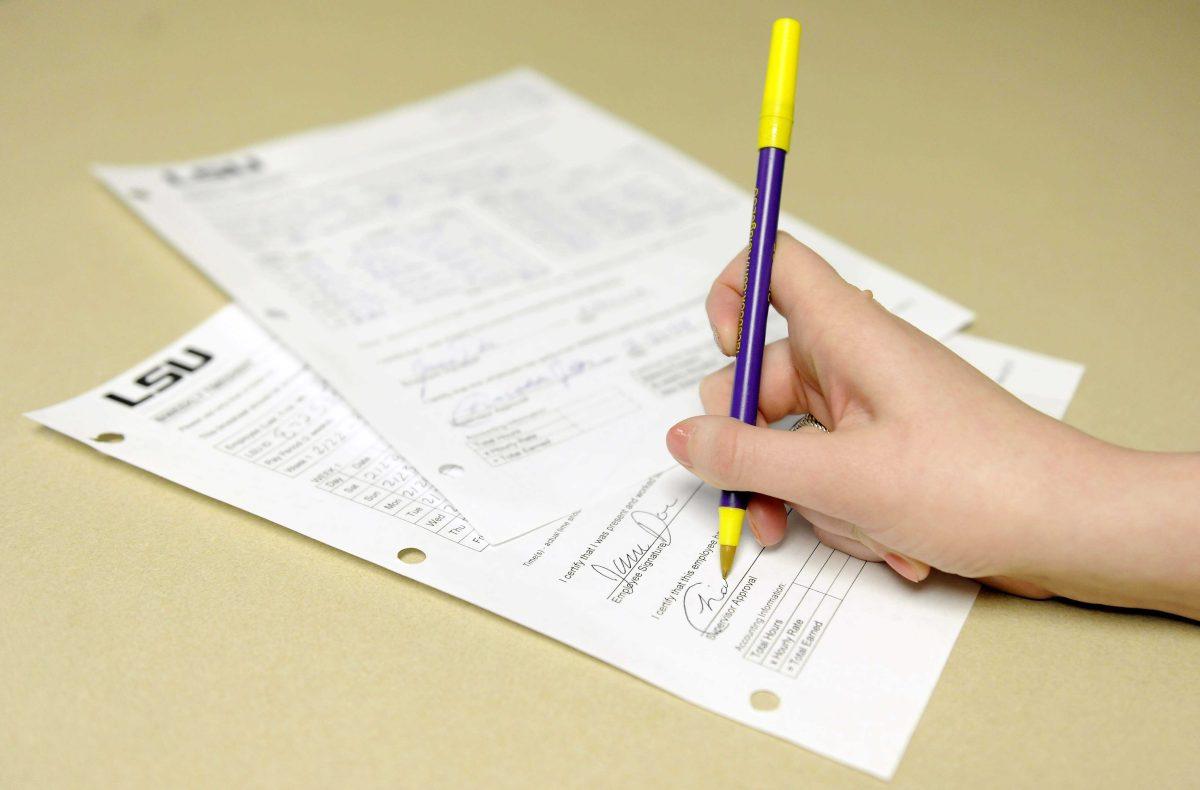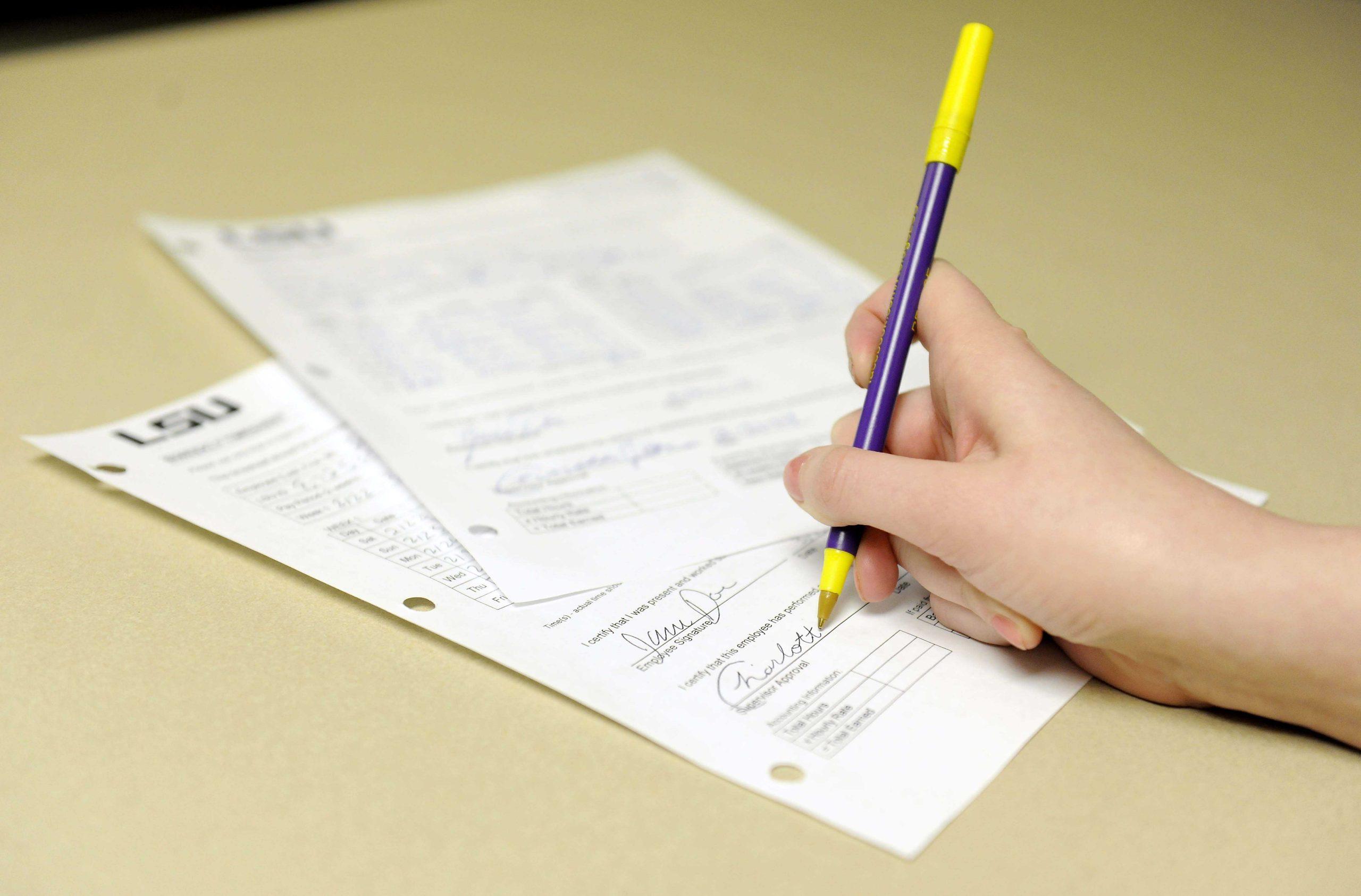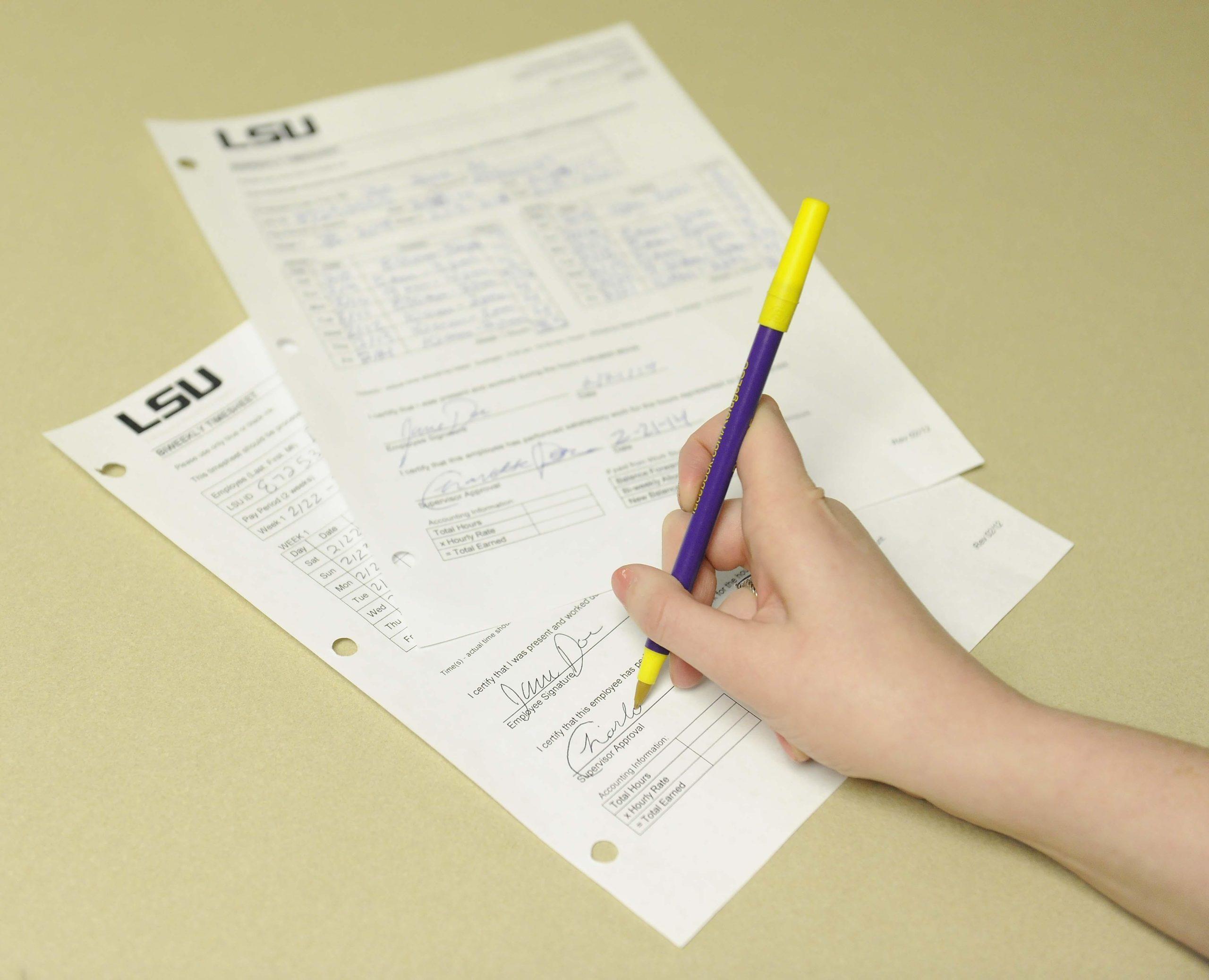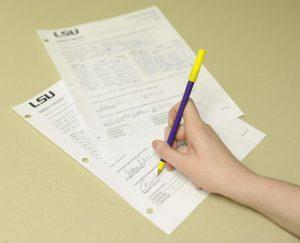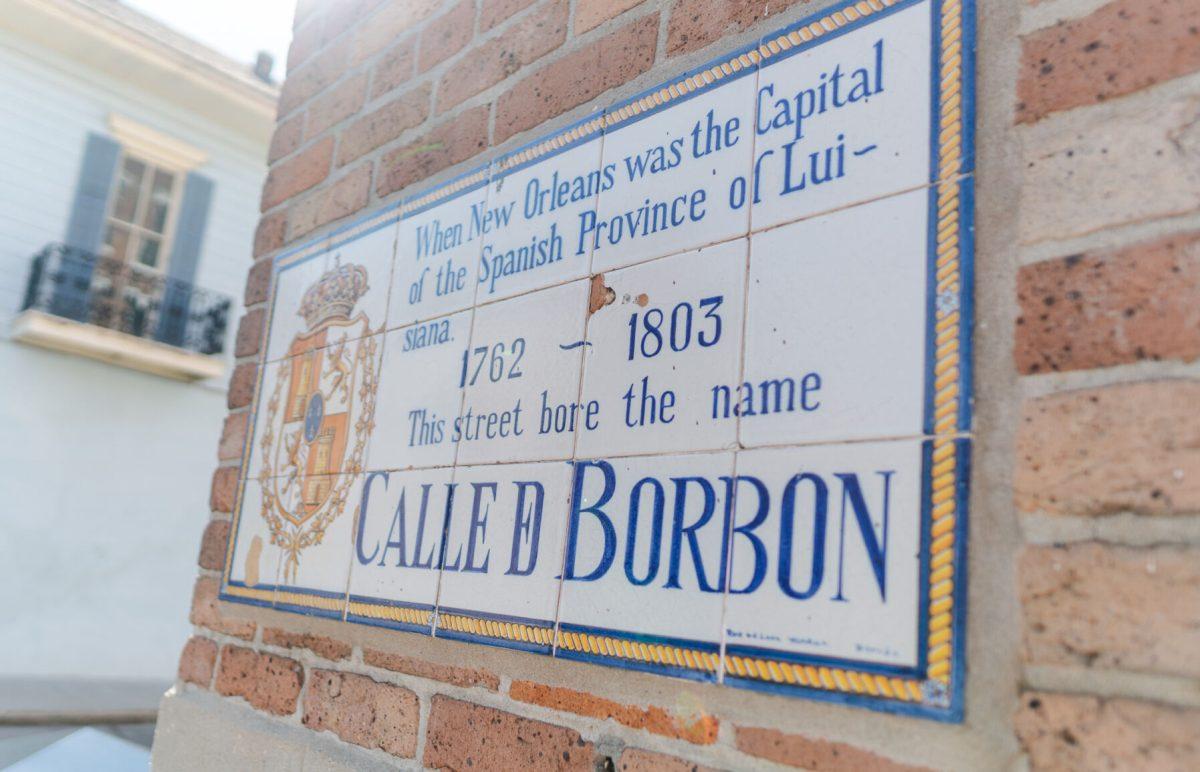A sudden spike in payroll fraud at the University is raising questions about how departments around campus are handling payroll.
In the past two months, there have been two reported cases of payroll fraud and two cases of attempted payroll fraud, according to LSU Police Department Spokesman Capt. Cory Lalonde.
The first case was reported Jan. 16 after a student working for the chemistry department was suspected of forging her supervisor’s signature on 27 separate time sheets and collecting an income of approximately $9,000 over a year’s time.
The chemistry department declined to comment on the incident.
The second case was reported on Feb. 11 after a student working at the Louisiana Digital Media Center submitted false payroll sheets to his supervisor with forged signatures of approval, collecting $969 of false income.
Last week, two student workers from the Cox Communications building were under suspicion of attempting payroll fraud, causing an investigation by LSUPD that revealed the two students were falsifying the hours on their time sheets to collect more pay.
All four students were arrested and booked into East Baton Rouge Parish Prison on felony charges for committing payroll fraud and falsifying public records. However, all four students are currently still enrolled in the University.
K.C White, associate vice chancellor and dean of students, said students found in violation of the LSU Student Code of Conduct have the option to meet with a staff member of the LSU Student Advocacy and Accountability Department to explain their case. Any potential finding of responsibility would then fall within a range of outcomes such as disciplinary probation or expulsion.
Lalonde said student payroll fraud typically involves a suspect submitting their time sheets with their supervisor’s signatures forged onto the document or leaving the workplace immediately after clocking in for the job and then returning later to clock out.
Lalonde said when a payroll manager realizes something is off in the record books, they typically have a suspect in mind before reporting the case to the authorities.
“The police department will always have to investigate further to ensure that we have all the information and facts possible in any situation.” Lalonde said. “More often than not, you’re going to have some idea who the person is solely because of the fact that everything is on record by the supervisors.”
Lalonde said the majority of payroll fraud investigations are spent not on who committed the fraud, but how the suspect committed the crime.
Director of LSU Payroll Donna Dewailly said each department payroll division on campus has its own procedures of preventing payroll fraud within the system.
Dewailly said incidents of fraud are sometimes discovered by supervisors after the suspects receive pay for days they were never scheduled to work.
Preventing payroll fraud is not an easy thing to do, but making the switch from paper to electronic time sheets could be safer depending on the situation, Dewailly said.
Even though two of the four payroll fraud cases involve students forging signatures on their time sheets, Dewailly said “no student should have the opportunity to forge their supervisor’s signatures on their time sheets.”
LSUPD remains ultimately unaware why the sudden spike in payroll fraud occurred and is unsure if the trend will continue to grow.
Lalonde said it is difficult for LSUPD to directly combat payroll fraud on campus, but the department will do what it can to educate supervisors that deal with payroll documents on taking the extra time to verify the necessary paperwork involved with payroll.
University sees increase in forged time sheets
February 26, 2014
More to Discover


